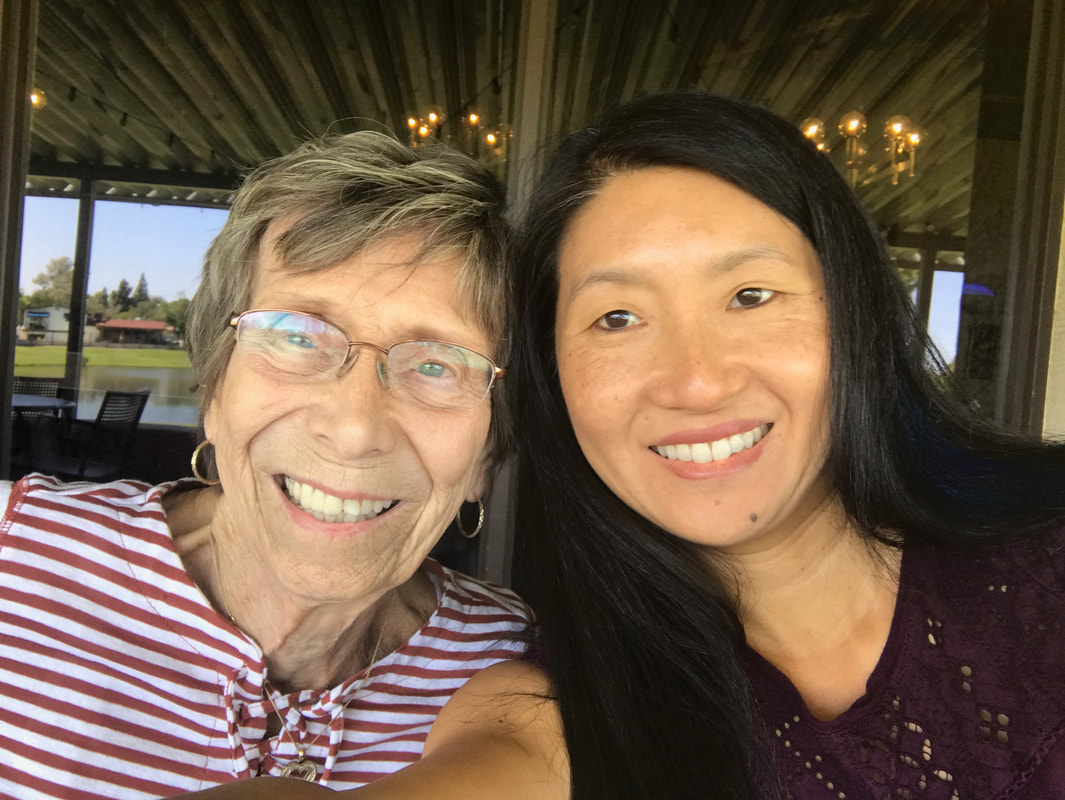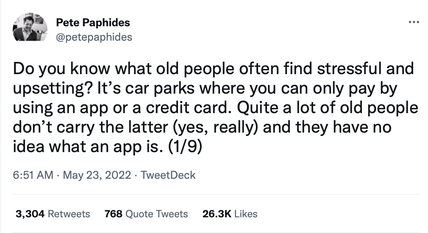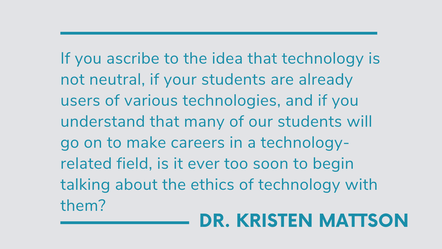Have you ever taught a hearing-impaired senior how to use a new app? Have you tried it over Zoom? Suffice it to say, it can be a challenge. My brother and I knew "operation hearing aid app training" would go a lot smoother if I was there to assist with Zoom and to show my mom, in person, what John was talking about on the other side of the screen. So we set it up so that Mom and I Zoomed together from my house to John in his. Side note: It went really well, and I highly recommend this approach if you find yourself in a similar situation. Something Just Isn't Right Since last week's virtual training, something has been nagging at me. Part of it comes from wondering what my mom (or others like her) would do if she didn't have someone to sit and teach her how to use this new technology. But it's more than that. I have been unable to rest easy after realizing that an assistive device such as high power hearing aids rely on app technology, when by in large, the users of said device are elderly people who don't own smart phones. Of the 37million adults with hearing loss: My mom (89) has been hard of hearing for several years and is currently on her third set of progressively stronger aids. To put this in perspective, try making a mental list of the 80-something year olds that you know.
I'm willing to guess the number of people left on your list is pretty small which illustrates the problem that has been nagging me. The largest demographic targeted for this technology is generally unequipped to use the app that controls it, rendering the hearing aids far less effective. And when hearing aids don't help people hear better, they stop wearing them. My mom is actually pretty competent with technology for a gal her age -- She owns a tablet, a Kindle, and an iPhone, all of which she uses regularly. She Zooms into family gatherings; she Ubers over to my house for dinner on weeknights; she even uses emojis in her text messages (though sometimes awkwardly). This might lead you to believe, "Great, so she will be able to use this app with relative ease!" Prior to the hearing aid training session, I thought so too. However, I failed to consider the severe arthritis in her hands which makes it difficult to tap and swipe, the macular degeneration that impairs her ability to read screens, and of course, hearing loss which makes helping her (especially from a distance) pretty challenging. All of these issues are common among people my mom's age -- people who commonly need hearing aids. Older Generation Getting Left Behind About a month ago, I happened upon a Twitter post that really spoke to me. The poster told a compelling story about his dad (84) who illegally parked in a lot that only took payment by credit card or app. Having neither, he parked without paying so he could attend a friend's memorial service. Click on the image to read the rest of the post in Twitter. As my mom's primary support person since 2016, this post resonated deeply in my soul. I've felt this son's same frustration more times than I can count, as I've borne witness to how difficult life can be for older people living in a world that wasn't designed for them. While the purpose of technology innovation has always been to improve the human experience, and indeed, our lives have been made better by countless technologies, it's also true that sometimes (perhaps more often than we'd like to admit), technology improves life for some people, but not all people. And often, those who are left behind are our parents, grandparents, and loved ones that came before us. Here are a few other examples of "forced technology use" that negatively impact seniors:
My intention is not to disparage the use of QR codes, online portals, or other everyday digital solutions that work beautifully for most of us. Rather, this is my plea to "see" an often unseen segment of our population, and to advocate for levels of accessibility that include, rather than exclude them. Technology Ethics Simply put, technology ethics means applying ethical thinking to the development and use of technology. For example, when we wrestle with questions such as how to control the spread of disinformation or the morality of targeting ads to children, we are applying ethical thinking in a digital context. Tech ethics is not just a responsibility of technology companies. Law makers, educators, parents/caretakers, and every day technology users like you and me must also wrestle with values-based questions about technology use. Importantly, technology designers and developers have a unique obligation to understand the ethical questions that apply to their products with respect to the back end (coding), front end (user interface), and potential systemic implications of use. Wheeling back around to the hearing aid situation... Looking through a tech ethics lens, I may think of new questions about how to improve accessibility for seniors, such as:
Teaching Tech Ethics The recent surge of STEM, computer science education, and instructional approaches such as design thinking and computational thinking indicates a shift in the educational landscape. More than ever, we aspire to empower students as designers, creators, and technology innovators. Fortunately, this provides the perfect backdrop in which to integrate tech ethics, starting with designing with empathy. As our students design apps, creatively code, and "make"(er space), we can teach them to intentionally design with users in mind. We can also encourage critical thinking about societal implications and the ways in which innovation could help or hurt various segments of the population. When we help students tap into ethical considerations around technology and innovation, we plant seeds for them to envision their own role in contributing to a better, more equitable world. I'll end with a quote from my friend and business partner, Dr. Kristen Mattson, from her book, Ethics in a Digital World: As I sign off, I'll invite you to share your experiences or thoughts about technology ethics and/or increasing accessibility for seniors. Feel free to drop a comment or reach out on Twitter. And as always, thank you for all you do to help our students become citizens, leaders, and world-changers! 🙏🏼
Cheers, LeeAnn P.S. You can find additional guidance for teaching social responsibility and technology ethics in the Edvolve Digital Citizenship Framework. Go to: Edvolve Framework > Social Responsibility > Enduring Understanding #1
3 Comments
Kim Reynolds
8/1/2022 10:06:25 am
Thank you Dr. Lindsey for reminding us that inclusion in technology means EVERYONE. Not just digital natives (like my children), or near-native users (like you and I), but non-native users like our parents. My mom (72 in 2 weeks) also just switched to hearing aids with a smart phone app. For her, it is no problem. My mom, like yours, is in many ways far more adapt at using and UNDERSTANDING technology than many of the younger generation. But my dad? He also needs hearing aids, and he refuses to use any phone other than a Motorola flip phone. The requirement of an app is just another argument that he uses against getting the much needed hearing aids. I always enjoy when you ask the hard, and unpopular questions about technology.
Reply
Ann L
8/6/2022 11:04:37 am
What a timely post! I have had these same thoughts as I’ve been the sole caregiver to my mom and have watched others struggle with devices and tools that are supposed to make life easier. My mom is 97 and also has macular degeneration, hearing loss and debilitating arthritis in her hands. Luckily her hearing aids don’t depend on a Smartphone app. I think her audiologist was mindful of her age and capabilities when we discussed new hearing aid options last year. Mom’s mind and health are great but it’s the other issues that cause problems in her ability to use technology devices. She uses a Lively flip phone and was interested in trying a Lively Smartphone so she could text family members easier. We ordered one and she tried it out. I tried to help her but she gave up. It was the physical limitations that hampered her ability to use it. If it wasn’t for me having access to her accounts, and scheduling appointments, etc. she would be lost.
Reply
Amy Scranton
8/6/2022 05:59:17 pm
Yes to all of this! My dad (age 83) is much like your mom - hard of hearing, vision impaired (macular degeneration), and somewhat "dexterity impaired." The technology that enriches and makes our lives easier is often a detriment to him. He struggles to manage hearing aids, the settings on his iPhone (even when set fully to respond to voice commands), and countless other tasks. Without a family member managing his financial account, doctor's appointments, and any online/digital presence he needs to have, he'd be lost. Your reminder that technology inclusion (or exclusion, in this case) is a real, relevant problem for many seniors today is so important. Awareness, sensitivity, and hands-on solutions that might actually take a step away from technology are definitely needed!
Reply
Leave a Reply. |
AuthorI care deeply about helping educators cultivate healthy environments where every student and teacher can learn, grow, and thrive in this digital world! |




 RSS Feed
RSS Feed
